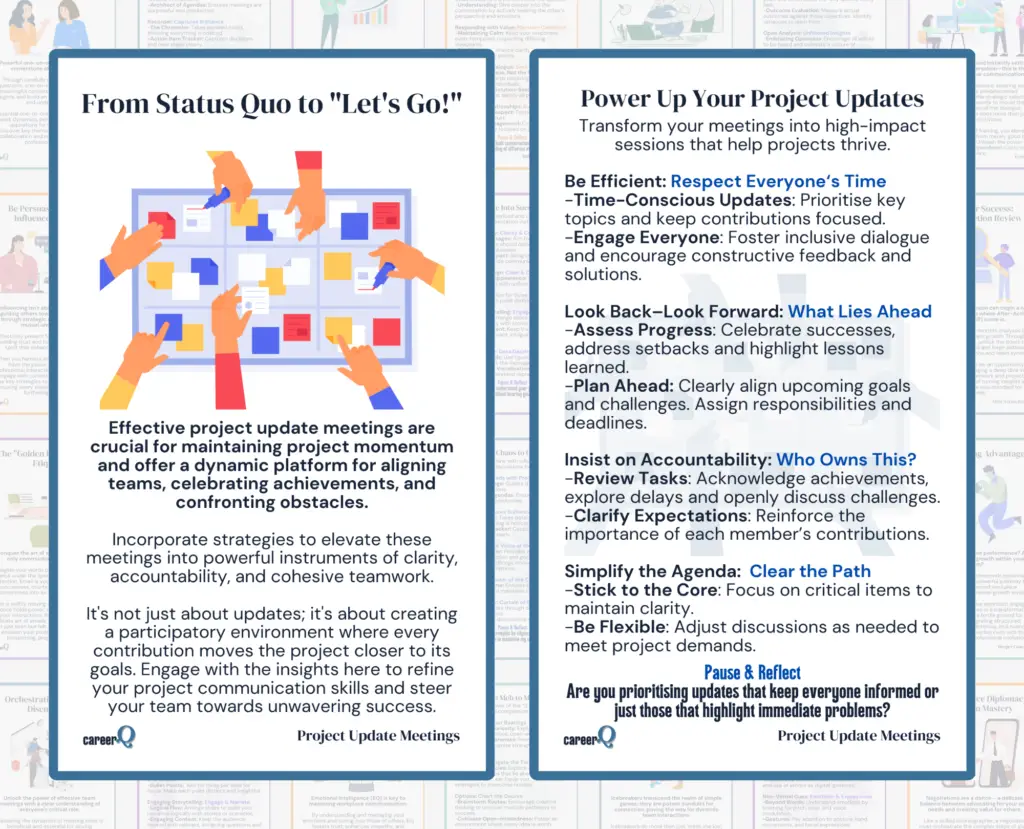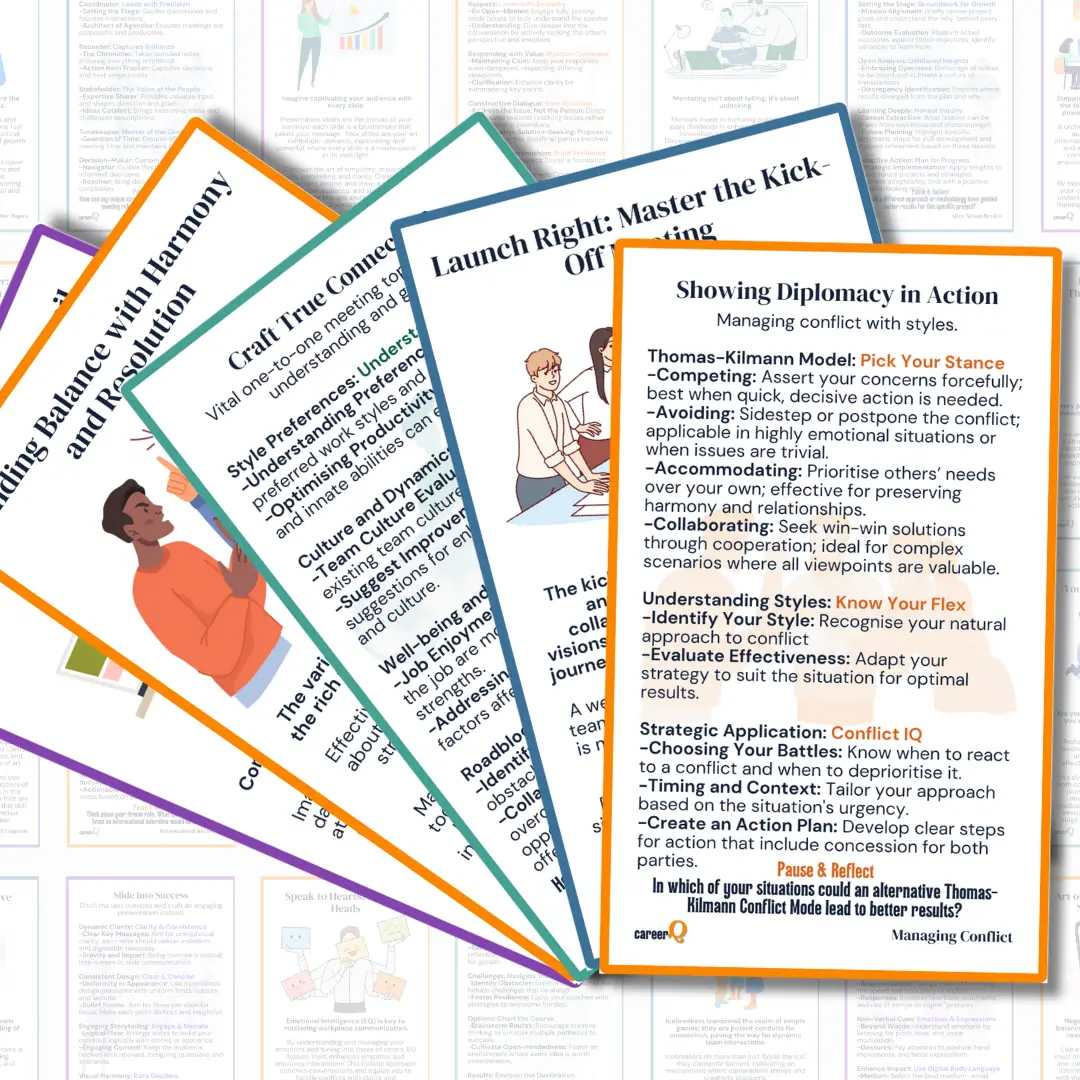
Your Secret Weapon Against Failure (and Boredom)
Did you know? While 70% of all projects fail, 62% of successful projects benefit from supportive sponsors. No one wants to be part of a failing project, especially when the journey is long. Maintaining the right focus is crucial—not just any focus but focusing on the right things.
Project update meetings, when managed effectively, can be a powerful tool to ensure your team stays focused and on track. In these meetings, intelligence and information should become a shared asset, driving project success without requiring any single person to be the smartest in the room.
Here are three ways to ensure your project team truly functions as a team during update meetings:
Unified Goals: Is everyone aligned with the same objectives? It’s essential that every team member understands the core aim of the project—whether it’s rolling out a new product by a specific date or achieving a particular operational milestone. Clarity about the project’s goals allows every member to act as a true stakeholder, capable of assessing whether the current and future paths will effectively progress or derail the project.
- Consider clarifying who the customer is, their impact on their lives, and each team member’s role in supporting this impact.
Addressing Challenges Openly: Don’t shy away from the ‘elephant in the room.’ What obstacles are currently holding the project back? Are certain paths looking like dead ends? Bringing these issues into the open fosters an environment of honesty and transparency. Collaboratively brainstorming can spark innovative ideas from other teams, businesses, or even industries.
- Remember the elevator mirror trick: installing a mirror made people enjoy their ride without noticing the elevator’s speed. It’s all about clever solutions to common problems.
Reflective Practices: Unlike the linear waterfall method of project delivery, agile project management involves multiple cycles and continuous feedback. In today’s fast-paced environment, it’s crucial to create time for reflection between cycles.
- Pro Tip: Regularly ask reflective questions to understand both successes and failures deeply. Reflecting on what worked, what didn’t, and how to approach the next steps can dramatically improve future outcomes. Questions like “What worked and why?” or “What didn’t work and why?” are invaluable for sparking meaningful reflection.
Struggling to communicate effectively at work? Our Communication Cue Cards can help.
These handy cards provide a series of thought-provoking prompts designed to elevate your communication skills in everyday situations. Each card offers a clear framework to guide you on what to say, how, and what to consider before speaking. This ensures you cover all essential points and maximize your daily interactions’ impact.
Ready to take your communication skills to the next level? Sign up to receive your free Communication Cue Cards starter kit and experience the difference for yourself. [Learn More]
Or, are you ready to leap and bring the power of Communication Cue Cards into your life? Click here to purchase your full deck of Communication Cue Cards and unlock your full communication potential! [Buy Now]
By implementing these communication strategies and leveraging the power of CareerQ Cue Cards, you can transform your project update meetings from frustrating slogs to focused discussions that propel your team towards success.
Ready to Transform Your Workday?
Get your Free Starter Pack & Sign Up To the careerQ E-Mail Newsletter

